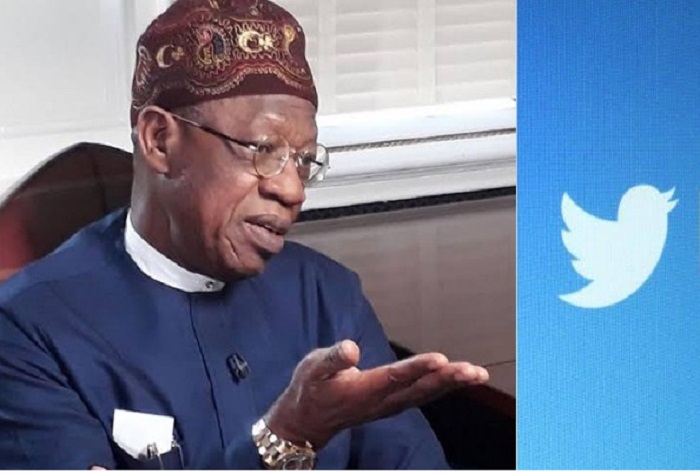FG Lists Six Gains Of Twitter Ban Despite Losing Over N500 Billion
The Nigerian Government has counted its gains from the seven months suspension of Twitter operations in the country.
After months of negotiation, the government announced that the suspension which came into force on June 5, 2021 would be lifted from 12 am on January 13, 2022.
Advertisement
Operations of the microblogging website was suspended after it deleted a tweet by President Muhammadu Buhari. The government had denied that the suspension had anything to do with the removal of the president’s tweet.
The government, through the Nigerian Communications Commission (NCC), had directed telecommunication companies in the country to block access to Twitter and subsequently threatened to prosecute anyone found using the platform via Virtual Private Networks (VPN).
The NetBlocks Cost of Shutdown Tool had estimated that Nigeria’s economy was losing $250,600 (N104.02 million) every hour to the Twitter ban.
The loss was estimated at N499.32 billion as of December, 2021.
Advertisement
But in its statement announcing the lifting of the Twitter ban, the government said it was “happy to say that the gains made from this shared national sacrifice are immeasurable.” It listed the gains to include:
- Ongoing economic and training opportunities as the Company continues to consider expanding its presence in Nigeria;
- Getting a better understanding of how to use the Twitter platform effectively to improve businesses;
- Revenue generation from the operation of Twitter in Nigeria;
- Smooth and coordinated relationship between Nigerian Government and Twitter leading to mutual trust;
- Reduction of cybercriminal activities such as terrorism, cyberstalking, hate speech, etc.; and
- Working with Twitter and other global companies to build an acceptable code of conduct following the global best practice.
Meanwhile, the Director-General of the National Information Technology Development Agency (NITDA), Kashifu Inuwa Abdullahi, who made the announcement, also disclosed the conditions met by Twitter before the ban was lifted.
Abdullahi, who served as Chairman Technical Committee of the Nigeria-Twitter Engagement, said the conditions “addressed legal registration of operations, taxation, and managing prohibited publication in line with Nigerian laws. Twitter has agreed to meet all the conditions set by the FGN. Consequently, the FGN and Twitter have decided on an execution timeline, which has started this week. Our engagement with Twitter opens a new chapter in global digital diplomacy and sets a new operational template for Twitter to come back stronger for the benefit of Nigerians.”
He gave the resolutions agreed with Twitter as follows:
Advertisement
i. Twitter has committed to establishing a legal entity in Nigeria during the first quarter of 2022. The legal entity will register with the Corporate Affairs Commission (CAC). The establishment of the entity is Twitter’s first step in demonstrating its long-term commitment to Nigeria.
ii. Twitter has agreed to appoint a designated country representative to interface with Nigerian authorities. The Global Public Policy team is also directly available through a dedicated communication channel.
iii. Twitter has agreed to comply with applicable tax obligations on its operations under Nigerian law.
iv. Twitter has agreed to enrol Nigeria in its Partner Support and Law Enforcement Portals. The Partner Support Portal provides a direct channel for government officials and Twitter staff to manage prohibited content that violates Twitter community rules. At the same time, the Law Enforcement Portal provides a channel for the law enforcement agencies to submit a report with a legal justification where it suspects that content violates Nigerian Laws. Taken together, these represent a comprehensive compliance apparatus.
v. Twitter has agreed to act with a respectful acknowledgement of Nigerian laws and the national culture and history on which such legislation has been built and work with the FGN and the broader industry to develop a Code of Conduct in line with global best practices, applicable in almost all developed countries.



